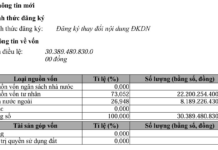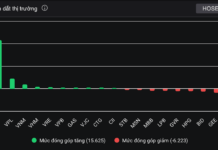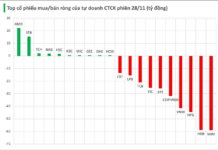
After 5 years from the customer’s debt settlement, the bad debt history will be erased (Illustrative image)
Ms. Le Thi Diep from Phu Nhuan District, Ho Chi Minh City, who had previously been in bad debt of more than VND 1 billion, said that she had just finished paying off the debt to the bank. However, the information about this debt still remains in the system of the Credit Information Center (CIC) of the State Bank, causing difficulties for her in borrowing from banks for business and production.
“How long will the bad debt history be kept, and what impact will it have if I apply for a bank loan in the future?” Ms. Diep wondered.
Regarding this issue, the leader of the Legal Affairs Department (State Bank) said that bad debt is a debt that the borrower is unable to repay according to the initial agreement. This is one of the negative information that can affect the individual’s financial situation and borrowing ability in the future. Specifically, banks will reject loan applications from customers with bad debts recorded in the CIC.
According to regulations, bad debts recorded in the CIC will be kept for a maximum of 5 years. This means that after 5 years from the date of debt settlement, the bad debt history will be erased unless requested by the borrower or the lending bank.
“Therefore, after repaying the debt, customers need to request a confirmation letter from the bank stating that they have no more debts. On this basis, customers can prove to business partners that they do not have bad debts, and banks will continue to lend when customers have borrowing needs,” said the leader of the Legal Affairs Department (State Bank).
Overcoming Challenges in Dealing with Bad Debts
In the newly passed Revised Securities Law, securities companies (SCs) no longer have the privilege to hold collateral. Therefore, SCs need to recognize that debt collection is their responsibility, and they should be extremely strict in assessing borrowers, ensuring compliance with principles, procedures, and conditions before granting loans.
Debt Expert Worries About Bad Debts and their Management
Many experts believe that bad debts and the speed of bad debt processing will stagnate when the power to seize collateral from borrowers under Resolution 42 is no longer inherited in the amended Law on Credit Institutions. Therefore, banks will have to carefully consider before signing contracts with partners to avoid getting caught in a cycle of “lending, kneeling for debt” situation.








































